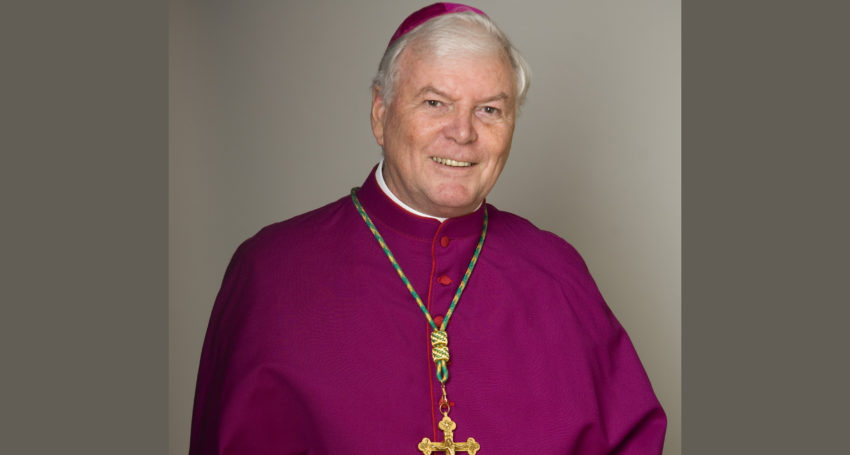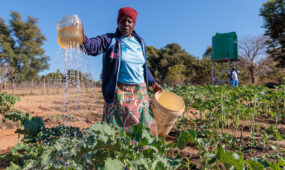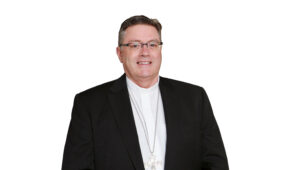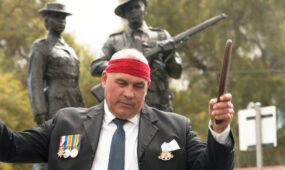Stability needed in 'unusual' times
News
Recently appointed Apostolic Administrator of the Adelaide Archdiocese, Bishop Greg O’Kelly SJ, has urged the faithful to care for each other during “unusual” and “demanding” times.

“This is a time in the history of the Archdiocese when we all need to care for each other, and to pray for each other, and to pray for Archbishop Wilson in these times that are so demanding,” he wrote in his message to the people of the Adelaide Archdiocese (see page 2).
Bishop O’Kelly’s appointment by Pope Francis on June 3 followed the standing aside of Archbishop Philip Wilson who was found guilty in May of failing to report historical child sexual abuse in the Maitland-Newcastle Diocese.
Advertisement
Bishop O’Kelly remains Bishop of Port Pirie Diocese and said he would share his time between Adelaide and Port Pirie.
“The Pope’s intention is to provide stability for the people of the Archdiocese during these challenging times,” he said in a statement on June 3.
“There is an excellent group of Church officials presently serving the Archdiocese and the day-to-day administration will continue to be carried out by those to whom I, as Apostolic Administrator, delegate that authority.
“On behalf of the people of the Adelaide Archdiocese, I thank Pope Francis for his pastoral concern for them and will do my best to fulfill this important role while also serving the people of Port Pirie Diocese.”
Bishop O’Kelly said he would exercise episcopal authority in the diocese “until such time as the Holy Father changes the arrangement”.
During his first Mass in St Francis Xavier’s Cathedral as Apostolic Administrator, Bishop O’Kelly spoke of the “extraordinary situation of legal proceedings being enacted with our Archbishop”.
“I stand here before you today in the capacity of what the Holy See describes as Administrator Apostolic. It is a most unusual situation, enacted in Australia only once before in the 19th century,” he said.
“Because of legal proceedings we cannot comment at any length on the situation of the Archbishop, except to express our love for him.
“Concerning the response of the Church to victims and survivors of abuse, so much has been done over the last 20 to 30 years to make the Church a safer place for vulnerable people, especially young people and the elderly.
“We must continue to ask with all openness about proper care for victims and survivors. The Church is quite prepared to enter into the National Redress Scheme to help victims more significantly. Very many protocols have been put into place to ensure that Catholic institutions are as safe as we can make them for the vulnerable and the young.”
Following submissions on sentencing on June 19 in the Newcastle Local Court, Magistrate Robert Stone reserved his decision until July 3.
Five character references, which were not contested by the prosecution, were provided to the court.
Referees included solicitor Paul O’Callaghan who knows two of the families of the prosecution witnesses as well as Archbishop Wilson, long-time friends John Madden and Richard Munro, Narelle Clay AM who worked in child protection with the Archbishop in the Wollongong Diocese, and Monsignor David Cappo AO, former Vicar General of the Adelaide Archdiocese.
Advertisement
Ms Clay referred to the Archbishop’s record as Bishop of Wollongong where he actively pursued endeavours to support victims of child sexual abuse and to ensure perpetrators were dealt with.
Mgr Cappo provided a reference to the Archbishop’s character and that he has been a “true leader of the Church”. He said the Archbishop was the first Catholic Bishop in Australia to introduce universal police checks; the first to establish a Police Check Unit with a number of full time staff to administer the police check process; the first to establish a Child Protection Council including experts from outside the Church and the first to establish an audit system of parishes to ensure compliance with proper policies and procedures.
Extensive reports were provided by doctors on the complex medical problems of Archbishop Wilson in relation to the impact of a custodial sentence.
Lawyers on both sides acknowledged the lack of precedent in assisting the magistrate with his determination of an appropriate sentence, saying they knew of no like offence anywhere in the world.
Prosecutor Gareth Harrison urged the magistrate to send a clear message to those people who “do and might” commit like offences and the only way that could be done was by sending the offender to jail.
He cited statistics indicating 16 per cent of offenders under section 316 relating to failure to report a serious indictable offence had received a full time custodial sentence, but where the accused had no prior convictions it reduced to 6 per cent and where they were over 50 years old it went to 0 per cent. He said of a total of 100 offences, most had been concealments of robberies, drug offences or murder, very often by family members or friends.
Ian Temby QC for the defence said: “We’ll be developing the case that our client is not just a man who has no prior convictions but he is in fact a man of prior positive good character with particular reference to the general field of prevention of child sexual abuse and the protection of children.
“So far as general deterrence – the fact that my client was charged and has been convicted and is to be sentenced – those facts have reverberated around the world, at least in religious circles. The fact of conviction must necessarily have a very significant deterrent effect whatever penalty Your Honour imposes,” he said.








Comments
Show comments Hide comments